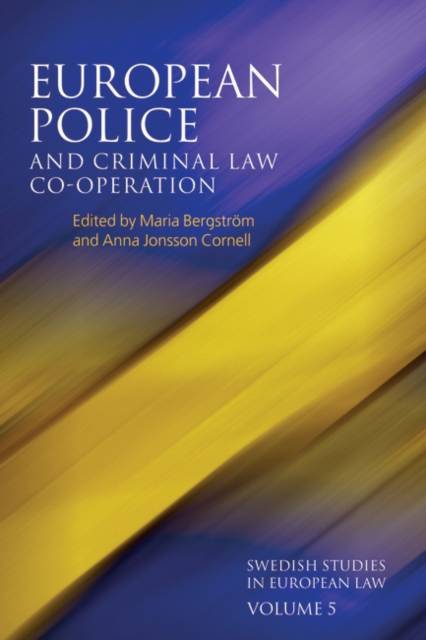
- Afhalen na 1 uur in een winkel met voorraad
- Gratis thuislevering in België vanaf € 30
- Ruim aanbod met 7 miljoen producten
- Afhalen na 1 uur in een winkel met voorraad
- Gratis thuislevering in België vanaf € 30
- Ruim aanbod met 7 miljoen producten
Zoeken
€ 121,95
+ 243 punten
Omschrijving
This is the fifth volume in the series Swedish Studies in European Law, produced by the Swedish Network for European Legal Studies. It focuses on EU criminal law and transnational police cooperation. Against the background of the most important changes introduced by the Lisbon Treaty in the area of criminal law and police cooperation, the book is divided into four main sections, with each section analyzing some specific challenges. The first section of the book includes a critical analysis of the boundaries of new criminal law competencies, as well as some more general challenges for EU criminal law. Specific focus is set on the lawmaking process. The second section deals with EU criminal law and fundamental rights, in particular the protection of personal data and individual privacy. It focuses on the implementation of EU law into national legal orders and the challenges that this process brings with it. The third section maps out specific challenges in transnational police cooperation - in particular, the important issue of the sharing of information between law enforcement agencies and its potential impact on the protection of fundamental rights. In the final section, the focus shifts toward networks, the horizontal agency, and multi-level cooperation in a wider sense within the area of freedom, security, and justice. (Series: Swedish Studies in European Law - Vol. 5)
Specificaties
Betrokkenen
- Auteur(s):
- Uitgeverij:
Inhoud
- Aantal bladzijden:
- 240
- Taal:
- Engels
- Reeks:
- Reeksnummer:
- nr. 5
Eigenschappen
- Productcode (EAN):
- 9781849463508
- Verschijningsdatum:
- 1/06/2014
- Uitvoering:
- Hardcover
- Formaat:
- Genaaid
- Afmetingen:
- 160 mm x 234 mm
- Gewicht:
- 498 g

Alleen bij Standaard Boekhandel
+ 243 punten op je klantenkaart van Standaard Boekhandel
Beoordelingen
We publiceren alleen reviews die voldoen aan de voorwaarden voor reviews. Bekijk onze voorwaarden voor reviews.








